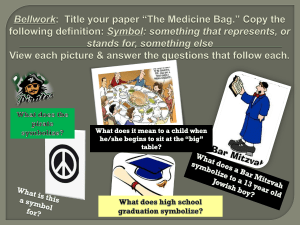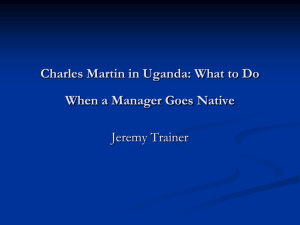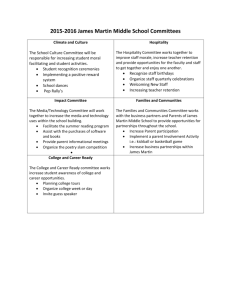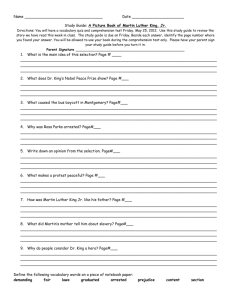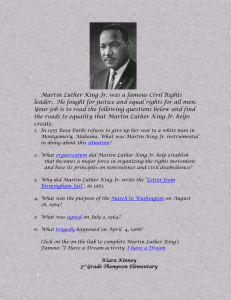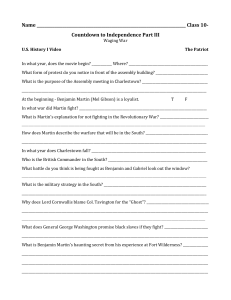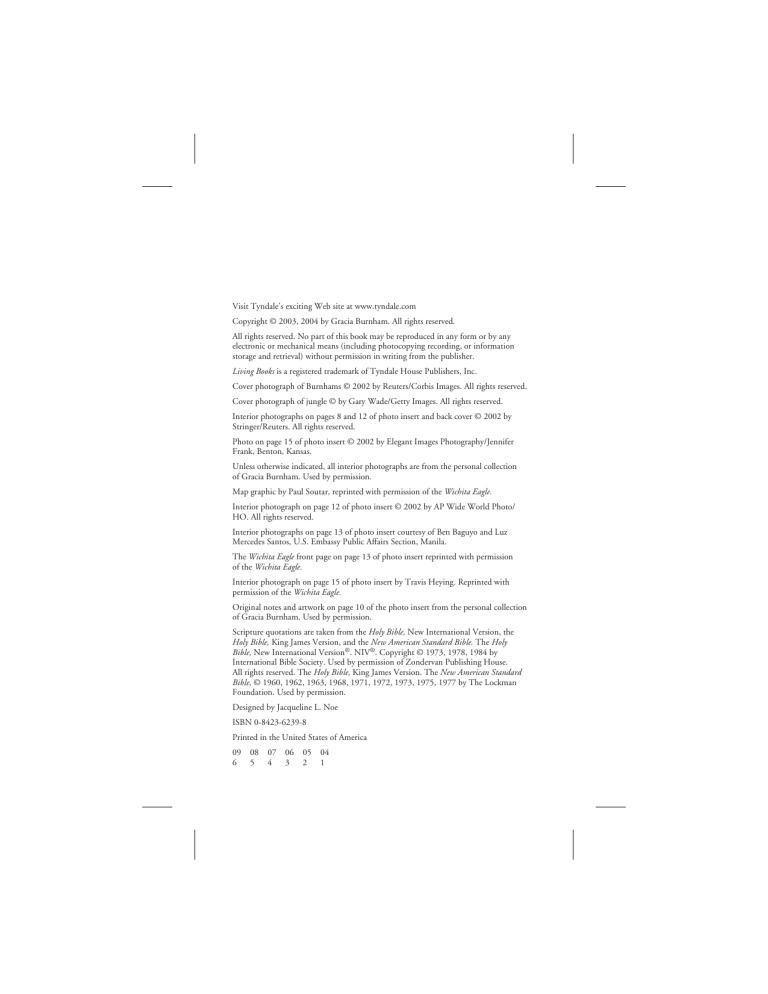
Visit Tyndale’s exciting Web site at www.tyndale.com
Copyright © 2003, 2004 by Gracia Burnham. All rights reserved.
All rights reserved. No part of this book may be reproduced in any form or by any
electronic or mechanical means (including photocopying recording, or information
storage and retrieval) without permission in writing from the publisher.
Living Books is a registered trademark of Tyndale House Publishers, Inc.
Cover photograph of Burnhams © 2002 by Reuters/Corbis Images. All rights reserved.
Cover photograph of jungle © by Gary Wade/Getty Images. All rights reserved.
Interior photographs on pages 8 and 12 of photo insert and back cover © 2002 by
Stringer/Reuters. All rights reserved.
Photo on page 15 of photo insert © 2002 by Elegant Images Photography/Jennifer
Frank, Benton, Kansas.
Unless otherwise indicated, all interior photographs are from the personal collection
of Gracia Burnham. Used by permission.
Map graphic by Paul Soutar, reprinted with permission of the Wichita Eagle.
Interior photograph on page 12 of photo insert © 2002 by AP Wide World Photo/
HO. All rights reserved.
Interior photographs on page 13 of photo insert courtesy of Ben Baguyo and Luz
Mercedes Santos, U.S. Embassy Public Affairs Section, Manila.
The Wichita Eagle front page on page 13 of photo insert reprinted with permission
of the Wichita Eagle.
Interior photograph on page 15 of photo insert by Travis Heying. Reprinted with
permission of the Wichita Eagle.
Original notes and artwork on page 10 of the photo insert from the personal collection
of Gracia Burnham. Used by permission.
Scripture quotations are taken from the Holy Bible, New International Version, the
Holy Bible, King James Version, and the New American Standard Bible. The Holy
Bible, New International Version®. NIV®. Copyright © 1973, 1978, 1984 by
International Bible Society. Used by permission of Zondervan Publishing House.
All rights reserved. The Holy Bible, King James Version. The New American Standard
Bible, © 1960, 1962, 1963, 1968, 1971, 1972, 1973, 1975, 1977 by The Lockman
Foundation. Used by permission.
Designed by Jacqueline L. Noe
ISBN 0-8423-6239-8
Printed in the United States of America
09
6
08
5
07
4
06
3
05
2
04
1
TABLE OF CONTENTS
The Captors’ Roster . . . . . . . . . . . . . . . . . . . . . . . . . . . . . . ix
The Hostages’ Roster . . . . . . . . . . . . . . . . . . . . . . . . . . . . xiii
Foreign Terms . . . . . . . . . . . . . . . . . . . . . . . . . . . . . . . . xvii
Maps of the Philippines . . . . . . . . . . . . . . . . . . . . . . . . . xviii
Introduction . . . . . . . . . . . . . . . . . . . . . . . . . . . . . . . . . . xxi
1
2
3
4
5
6
7
8
9
10
11
12
13
14
15
16
17
18
19
20
21
22
Seized at Dawn . . . . . . . . . . . . . . . . . . . . . . . . . . . . . . 1
Bright Beginnings . . . . . . . . . . . . . . . . . . . . . . . . . . . 23
The Nicest Guy . . . . . . . . . . . . . . . . . . . . . . . . . . . . . 31
Rookies . . . . . . . . . . . . . . . . . . . . . . . . . . . . . . . . . . . 43
Toddlers and Traffic . . . . . . . . . . . . . . . . . . . . . . . . . 57
The Perils of Palawan. . . . . . . . . . . . . . . . . . . . . . . . . 69
Hospital of Horror . . . . . . . . . . . . . . . . . . . . . . . . . . 81
The Threat . . . . . . . . . . . . . . . . . . . . . . . . . . . . . . . . 97
Left Behind . . . . . . . . . . . . . . . . . . . . . . . . . . . . . . . 113
Surrounded. . . . . . . . . . . . . . . . . . . . . . . . . . . . . . . 125
A Song for the Jungle . . . . . . . . . . . . . . . . . . . . . . . . 139
Justice or Mercy? . . . . . . . . . . . . . . . . . . . . . . . . . . . 155
September 11 . . . . . . . . . . . . . . . . . . . . . . . . . . . . . 173
Wedding Time . . . . . . . . . . . . . . . . . . . . . . . . . . . . 187
The Package . . . . . . . . . . . . . . . . . . . . . . . . . . . . . . 205
Silent Nights . . . . . . . . . . . . . . . . . . . . . . . . . . . . . . 219
So Close . . . . . . . . . . . . . . . . . . . . . . . . . . . . . . . . . 235
Ransomed! . . . . . . . . . . . . . . . . . . . . . . . . . . . . . . . 253
One Rainy Afternoon . . . . . . . . . . . . . . . . . . . . . . . 269
The Embassy. . . . . . . . . . . . . . . . . . . . . . . . . . . . . . 287
Going Home. . . . . . . . . . . . . . . . . . . . . . . . . . . . . . 305
Reflections . . . . . . . . . . . . . . . . . . . . . . . . . . . . . . . 323
Epilogue . . . . . . . . . . . . . . . . . . . . . . . . . . . . . . . . . 331
THE CAPTORS’ ROSTER
Of the dozens of Abu Sayyaf who guarded the Burnhams at
various times, these were the most prominent.
POPULAR
NAMES
OFFICIAL
NAME
ROLE
PRESENCE
POPULAR
NAMES
OFFICIAL
NAME
ROLE
PRESENCE
POPULAR
NAMES
OFFICIAL
NAME
ROLE
PRESENCE
POPULAR
NAMES
OFFICIAL
NAME
ROLE
PRESENCE
“Moktar,” “Abu Moktar” (see photo section)
Khadaf i Abubakar Janjalani
Leader of the entire Abu Sayyaf (following the
1998 slaying of his older brother, the group’s
founder); late 20s, but looked younger; quiet;
eventually “married” Reina
Met the hostages upon arrival on Basilan May 31,
2001; left them late September 2001
“Musab,” “Abu Musab” (see photo section)
Isnilon Totoni Hapilon
Second-in-command of the Abu Sayyaf; knew
little English; stern, headstrong; eventually
“married” Ediborah
From the beginning through early May 2002
“Omar,” “Abu Omar”
Bakkal Hapilon
Brother of Musab; eventually took Sheila
for himself but did not formally “marry” her
Met the hostages upon arrival on Basilan May 31,
2001; stayed through early May 2002
“Sabaya,” “Abu Sabaya” (see photo section)
Aldam Tilao
Spokesman to the media; negotiator with the
government; known for his flair; very good
English; eventually “married” Angie
With the hostages the entire time
x
IN THE PRESENCE OF MY ENEMIES
POPULAR
NAME
OFFICIAL
NAME
ROLE
PRESENCE
POPULAR
NAME
ROLE
PRESENCE
POPULAR
NAME
OFFICIAL
NAME
ROLE
PRESENCE
POPULAR
NAME
ROLE
PRESENCE
POPULAR
NAME
ROLE
PRESENCE
POPULAR
NAMES
OFFICIAL
NAME
ROLE
PRESENCE
“Solaiman” (see photo section)
Jainal Antel Sali Jr.
Prime liaison with the hostages for the first 3 1 2
months, due to his education, English fluency;
late 30s; former engineer from a wealthy family
From the beginning through late September 2001
“Mang Ben”
Early leader of the Burnhams’ subgroup; tall,
thin, stately appearance; late 30s
From the beginning until killed in battle early
July 2001
“Hurayra”
Jumadil Arad
Friendly toward the Burnhams; mid-20s
From the beginning through late September 2001
“Moghira”
Subgroup leader; eventually “married” Fe
Met the hostages upon arrival on Basilan May 31,
2001; left New Year’s Eve 2001
“Sakaki”
Gracia Burnham’s first designated guard
From the landing on Basilan until he went
AWOL July 2001
“Bro,” “Kosovo”
Alhamzer Limbong
Classic warrior type; big, muscular, well-built,
proud of his long, wavy hair; knew just a bit of
English but willing to try using it
From the beginning through late September 2001
The Captors’ Roster
POPULAR
NAME
OFFICIAL
NAME
ROLE
PRESENCE
xi
“Zacarias”
Toting Craft Hanno
Fun-loving; early 20s; Solaiman’s assistant
One of the original trio to abduct the Burnhams;
left due to sickness late September 2001
The title Abu means “father of.” Mang means “uncle.”
Other resistance groups operating in the southern Philippines:
..
Moro Islamic Liberation Front (MILF)
Moro National Liberation Front (MNLF)
Moro is an ethnic label for Filipinos who are Muslim. It traces
back several centuries to the Spaniards, whose name for Muslims in their own country was “Moors.”
THE HOSTAGES’ ROSTER
Captured at Dos Palmas Resort on May 27, 2001
MEN
NAME
DESCRIPTION
CONCLUSION
NAME
DESCRIPTION
CONCLUSION
NAME
DESCRIPTION
CONCLUSION
NAME
DESCRIPTION
CONCLUSION
NAME
DESCRIPTION
CONCLUSION
NAME
DESCRIPTION
CONCLUSION
NAME
DESCRIPTION
CONCLUSION
Martin Burnham
CAPTIVITY 1 year, 11 days
American missionary pilot from Kansas; age
41; husband of Gracia, father of three
Killed by three gunshots June 7, 2002
Francis
CAPTIVITY 20 days
Banker; age 50; husband of Tess
Released June 15, 2001, after ransom was paid
Chito
CAPTIVITY 38 days
Salesman for a cell-phone company; 30s;
married, father of three
Released July 3, 2001, after ransom was paid
Reggie
CAPTIVITY 7 days
Former newspaper executive; VP of a
construction company with many government
contracts; late 40s
Released June 2, 2001, after ransom was paid
Buddy
CAPTIVITY
7 days
Publisher of a travel magazine; husband
of Divine
Abandoned June 2, 2001, after being wounded
R. J.
CAPTIVITY 7 days
Buddy and Divine’s 8-year-old son
Released June 2, 2001
Guillermo Sobero
CAPTIVITY 16 days
American contractor from California; age 40
Beheaded June 11, 2001
xiv
IN THE PRESENCE OF MY ENEMIES
NAME
DESCRIPTION
CONCLUSION
NAME
DESCRIPTION
CONCLUSION
NAME
DESCRIPTION
CONCLUSION
Sonny Dacquer
CAPTIVITY 6 days
Dos Palmas cook
Left behind, then beheaded June 1, 2001
Armando Bayona
CAPTIVITY 6 days
Dos Palmas security guard
Left behind, then beheaded June 1, 2001
Eldren
CAPTIVITY 6 days
Dos Palmas security guard
Left behind June 1, 2001; survived a botched
beheading attempt
WOMEN
NAME
DESCRIPTION
CONCLUSION
NAME
DESCRIPTION
CONCLUSION
NAME
DESCRIPTION
CONCLUSION
NAME
DESCRIPTION
CONCLUSION
Gracia Burnham
CAPTIVITY 1 year, 11 days
American missionary from Kansas; early 40s;
wife of Martin, mother of three
Wounded by one gunshot during June 7,
2002, encounter, but evacuated
Tess
CAPTIVITY 7 days
Wife of Francis; a “mother” to Gracia while
on the boat; religious and caring
Released June 2, 2001, in order to arrange
ransom for her husband
Janice
CAPTIVITY 7 days
Coworker of Chito; 20s; full of life
Released June 2, 2001, in order to arrange
ransom for Chito
Rizza
CAPTIVITY 7 days
Girlfriend of Reggie
Released June 2, 2001, after ransom was paid
The Hostages’ Roster
NAME
DESCRIPTION
CONCLUSION
NAME
DESCRIPTION
CONCLUSION
NAME
DESCRIPTION
CONCLUSION
NAME
DESCRIPTION
CONCLUSION
NAME
DESCRIPTION
CONCLUSION
NAME
DESCRIPTION
CONCLUSION
xv
Divine
CAPTIVITY 7 days
Wife of Buddy, mother of R. J.
Abandoned June 2, 2001, after being wounded
Angie
CAPTIVITY 5 1 2 months
Sister of Divine; early 30s; single; worked
in the family business (travel magazine)
Ransomed in late August but not released until
November 15, 2001
Letty
CAPTIVITY 7 days
Chinese-Filipino businesswoman
Released June 2, 2001, in order to arrange
ransoms for her daughter and niece
Kim
CAPTIVITY 20 days
Daughter of Letty; early teens
Released June 15, 2001, after ransom was paid
Lalaine
CAPTIVITY 38 days
Niece of Letty; early teens
Released July 3, 2001, after ransom was paid
Fe
CAPTIVITY 51 2 months
Fisherman’s daughter from Palawan; age 20;
fiancée of Guillermo
Ransomed in late August but not released until
November 15, 2001
Captured at Lamitan hospital on June 2, 2001
NAME
DESCRIPTION
CONCLUSION
NAME
DESCRIPTION
CONCLUSION
Sheila
CAPTIVITY 51 2 months
Nurse; married, mother of one son
Released November 15, 2001
Reina
CAPTIVITY 4 months
Nurse; early 20s; single
Released in September due to pregnancy
xvi
IN THE PRESENCE OF MY ENEMIES
NAME
DESCRIPTION
CONCLUSION
NAME
DESCRIPTION
CONCLUSION
Ediborah Yap
CAPTIVITY 1 year, 5 days
Head nurse; mother of four
Killed by gunshot June 7, 2002
Joel
CAPTIVITY 41 2 months
Hospital orderly; early 20s; single
Escaped during firefight October 14, 2001
Surnames of surviving Filipino hostages are withheld out of respect for their privacy.
All dates in this chart, and throughout the book, are local time.
Central time zone in the United States (e.g., Kansas, Arkansas)
is 13 hours behind Philippine time in the summer, 14 hours
behind in the winter. (The Philippines, being close to the equator, has no need for a daylight saving time arrangement.)
FOREIGN TERMS
Abu Sayyaf: “father of the
swordsman”
Al-Harakatul Islamia: the
Islamic movement
alimatok: leeches
“Allah akbar!”: “Allah is the
greatest!”
apam: Muslim version of
a pancake
banana-cue: ripe banana
pieces rolled in brown
sugar and fried
banca: a small boat
bianbons: roasted banana mush
bolo: knife; Filipino equivalent
of a machete
CAFGU: civilian deputized to
help the Philippine troops
carabao: water buffalo
Cebuano: Filipino language
CR: “comfort room” (Filipino
abbreviation for bathroom)
hajj: pilgrimage to Mecca
prescribed as a religious
duty to Muslims
halo-halo: crushed ice with
sweetened condensed milk
and mixed-in fruit
Ilocano: Filipino language
kalaw: duckbills—beautiful,
big birds with bright red
bills
langaw: from Tagalog for
housefly—obligation to
share something with
others if they want it and
ask for it
malong: wraparound skirt
made of batik material
mujaheed (pl., mujahideen):
fighter in Islamic holy war
pantos: pants (like pajama
bottoms)
Sabaya: “booty of war”
sabayaed: when a captive
is “wedded” to a captor
“Salam!”: “Peace!”
“Salam alaikom!”: “Peace to
you!”; standard greeting
among Abu Sayyaf
sindol: hot coconut milk that
can be mixed with fruit
sundalo: soldiers
Tagalog: Filipino language
terong: head covering, head
shawl
tolda: multistriped plastic
awning thrown over a
rope between two trees
for shade
tsinelas: flip-flops
viand: anything that goes on
top of rice, such as a sauce
Paul Soutar/The Wichita Eagle
Paul Soutar/The Wichita Eagle
CHAPTER 1
SEIZED AT DAWN
(May 27–28, 2001)
Bang, bang, bang!
Martin and I woke with a start. It was still dark outside and we couldn’t see a thing. We could only hear the
pounding on the wooden door of the beach cabin where
we were celebrating our eighteenth wedding anniversary.
Bang, bang, bang, bang, bang!
Ugh—they want us to move to the next cabin, I
thought. During dinner the night before, a member of
the resort staff had said something vague about wanting
us to change rooms but then had dropped the subject. I
yelled to the person pounding on the door, “It’s too early
to move!”
Bang, bang, bang!
Martin yelled this time: “What?”
“It’s a guard,” came the reply.
I’ll bet he’s drunk, I thought, thinking that maybe
the guard had been drinking during his overnight shift
and was now out raising a ruckus. Once again, the banging resumed.
“Martin, I think the guard is drunk.”
“No, I think something’s wrong,” he replied. He got
up and started to head for the door.
“Honey, wait—you need to put some pants on first!”
Martin grabbed some knee-length khaki shorts, the
kind with baggy cargo pockets, from beside the bed.
Meanwhile, I sat up and began to gather my clothes as
well—a pair of shorts and a gray T-shirt I had worn the
night before.
Just as Martin reached the door, it burst open. Three
guys holding M16s charged into the room. All were
2
IN THE PRESENCE OF MY ENEMIES
short, and one was very young—probably in his teens.
Another was perhaps twenty-three or twenty-four, with
long black hair. I could tell the third man was somewhat
older. All wore long-sleeved black shirts; two had camouflage pants. But there were no uniforms, no masks or
sunglasses; we could see their faces.
Immediately, they swept Martin out the door, while
the older man began yelling at me, “Go, go, go!”
“No, no, no!” I replied, clutching the sheet up around
me. “I’m not dressed.” I didn’t know how much English
he knew, but I was not about to obey him in my present
state regardless. Shaking, I began pulling on my shorts.
“Okay, okay,” he answered. I continued dressing.
One man had taken Martin outside, while the third
one began to rifle through our belongings. He found our
camera and our cell phone.
“Move, move, move!” came the order again. As I was
hurried out the door, I grabbed our thong tsinelas, the
common flip-flops that everyone wears in the Philippines. There wasn’t time for me to grab my purse or anything else.
The young guy who followed me out wanted me to
walk faster, even run. I knew from previous training that
in the first few moments of a kidnapping, you’re supposed to comply with orders in every way you can, until
everybody’s adrenaline calms down. But I was just so
mad at this kid—I was not going to run!
“Faster, faster!” he said, jabbing me in the back with
the barrel of his weapon.
With a calm voice I replied through clenched teeth,
“I’m walking fast enough.” I kept my pace. He jabbed
me again, and it did hurt, but I was determined to exercise my will.
Once I got to the dock, a speedboat maybe thirtyfive feet long with three massive outboard engines—the
Seized at Dawn
3
kind of boat used for drug running—was waiting. Four
or five frightened hostages were already sitting on the
floor of the boat. Martin, still shirtless, let out a sigh of
relief to see me, having been forced to leave me in the
room not fully clothed. “Oh, I’m so glad to see you,” he
said. “Did anybody hurt you?”
“No, no—I just had to get dressed.”
Naturally, he was without his contact lenses, which
made his vision a blur. Fortunately for me, he had encouraged me a couple of years earlier to have laser surgery on my eyes in Manila. So I was in good shape to see
distances, even if he was not.
As I sat next to Martin in the boat, we watched as
others began to arrive from the various cabins. Dawn
was just starting to paint the eastern sky.
Some of the people started showing up with suitcases! One rather chic-looking couple came not only with
suitcases but also with a big cooler of water. My goodness, I
thought to myself, I really didn’t have to run out of the
room so fast. I could have dragged my feet a little more and
gotten some stuff together.
I stood up and announced, “I’m going to go get
Martin a shirt!”
“Sit down,” barked one of the captors. “We’ll get him
a shirt.”
I promptly obeyed. But I took notice of the fact that
his English was quite good. At least we can communicate
with this one, I thought. We later learned his name was
Solaiman.
“I have our tsinelas here,” I said to Martin, holding
them up. I was really proud of myself.
“Yeah,” he said. We didn’t put them on our feet,
however; we just held them. Martin was quiet as he
looked around the boat, first at the men with guns and
then at the other hostages. I could tell that he was trying
4
IN THE PRESENCE OF MY ENEMIES
to size up the situation, trying to figure it all out. This
wasn’t easy, however, since nearly everyone else on the
boat was speaking languages we didn’t understand. Occasionally, someone would throw an English word into
the conversation and we’d be able to piece together some
meaning. For the most part, however, we simply had to
watch faces and listen to a person’s tone of voice to figure
out what he was saying.
I glanced down and the shine of my wedding ring
caught my eye. These guys are not going to get my ring! I
vowed. I pulled it off, along with a turquoise ring I was
wearing on the other hand, and slipped them into my
shorts pocket when no one was looking.
“Don’t you think you should give me your wedding
ring?” I asked Martin.
“Oh, no, we’ll be fine,” he answered, ever the optimist.
“Are you sure?”
“Yeah, it’ll be okay.”
::::
This whole romantic getaway at Dos Palmas Resort had
been my idea, a fact that weighed heavily on my mind as
I sat there shivering in the boat. It came about after Martin was offered a promotion with New Tribes Mission,
the group with whom we had served in mission aviation
for more than fifteen years. The agency wanted him to
become chief pilot for the entire organization, which
would mean moving back to Arizona and overseeing all
flight programs worldwide.
Although he was flattered by the offer, Martin really
didn’t want the position. “I just want to be what I’ve always been: a line pilot,” he told me. Martin was never
happier than when he was flying the mission’s little redand-white Cessna into jungle airstrips, bringing grocer-
Seized at Dawn
5
ies and medicine to our missionary colleagues, or helping ferry tribal people out to medical appointments.
Nevertheless, Martin’s extraordinary piloting and
ability to work with people kept moving him higher and
higher up the organization’s chain of management. In
fact, he had turned down this promotion several times
because our three kids were still young and he didn’t
want to do all the required traveling.
I kept telling him, “You know, I don’t want to
move back to the States any more than you do. But the
truth is, you’re the right man for this position. You
really are!” I loved the Philippines, but to be honest, I
didn’t care where we were or what we were doing, as
long as we were together. Martin would just smile and
shake his head at me.
About May 10, Martin left for a two-week trip to
the United States so he could meet with the senior New
Tribes leadership team. While he was away, the mission
pilot on the western island of Palawan was called home
due to a death in the family, leaving the island unmanned. Through e-mail, Martin and I concluded that
as soon as he returned, Martin should go to Palawan to
fill in; after all, the missionaries in the tribes needed
flight service. Plus, a translator was already scheduled to
come and do some tribal work on those particular days.
He’d need a pilot.
As I went over Martin’s schedule in my mind, I
knew he would be returning to the Philippines tired and
jet-lagged—and would immediately take off for a week’s
duty on Palawan. I also knew that he would put in long
days on the island and that he’d have to cook for himself.
It didn’t seem right. I knew he needed help.
My schedule was packed as well, with visitors coming through—but then, oddly enough, a couple of
things canceled. I can go along with him and help him out,
6
IN THE PRESENCE OF MY ENEMIES
I thought. Plus, with our wedding anniversary coming
up on the twenty-eighth, if I went along I could at least
be with him on that day. Maybe we can even do something
special while we’re there. We’ve never had time to really enjoy the sights of Palawan.
I called one of our coworkers on the island and asked
her, “Where’s a good place for Martin and me to celebrate our anniversary? He’ll just be back from the States.”
“Oooh, you should go to Dos Palmas,” my friend
said. “It’s a wonderful resort on an island all its own; you
can only get there by boat. The food is terrific, and they
have two kinds of rooms—garden cottages on land and
cottages on stilts over the water.”
“What would you recommend?”
In the background I heard her husband call out,
“Over the water! Those are the nice ones.”
“Okay, why don’t you go ahead and book one for us
for Saturday night the twenty-sixth?” I said. After that, I
arranged for our neighbors, Bob and Val Petro, to take
care of the kids. I began cooking ahead and freezing
some meals for them to eat while we were away.
When the Dos Palmas reservation came through, I
looked at the price—10,000 pesos for the two of us
($200)—and got cold feet. Yes, it covered lodging, activities, and all meals, but still . . . that was an awful lot of
money for our budget. Would Martin be upset with this
extravagance? What would our donors think if they
knew? Maybe I should just call my friend back and ask if
there’s a nice place in town instead, I thought.
If only I had. . . .
::::
I looked around and counted: there were seventeen hostages in all packed onto the floor of the speedboat. Up on
the deck, ahead of the pilot wheel, a group of our captors
Seized at Dawn
7
stood, while a few others stood back by the motors. Conversation flowed, in both English and one or more other
languages I didn’t recognize.
The whole loading process had taken maybe twentyfive minutes—all the hostages had been taken from the
cabins over the water, none from the garden cabins. At
the last minute, somebody said, “Wait! We need a
cook.” Quickly, one of the kidnappers jumped out of the
boat and ran up to the top of the hill to abduct the resort’s cook; his name was Sonny. Two security guards
were nabbed as well. Obviously, they were no match for
the raiders.
With Sonny and the guards, our hostage count rose
to twenty.
The engines powered up, we pulled away from the
pier—and suddenly one mystery was solved. The entire
group of fifteen or so captors began to pump their fists in
the air as they chorused in unison, “Allah akbar! Allah
akbar! [Allah is the greatest! Allah is the greatest!]” Instantly, we knew who we were dealing with: the dreaded
Abu Sayyaf. They were the only ones with the audacity
to do something like this.
I didn’t know a lot about the Abu Sayyaf, other than
that they were terrorists. Throughout the southern Philippines, people were afraid of them. We learned later the
meaning of their name, which set the tone accurately:
Abu (“father of”) Sayyaf (“the swordsman”).
This was the same group that had taken Jeffrey Schilling, an African-American Muslim who had come to the
Philippines to marry a Muslim girl the year before. Upon
hearing about the Abu Sayyaf, he thought he could go to
them, as a fellow Muslim, and explain that their tactics
violated the Koran. His attempts at reeducation backfired immediately; they said he was a CIA agent, turned
him into a hostage, and demanded one million dollars in
8
IN THE PRESENCE OF MY ENEMIES
ransom. Jeffrey was held for seven and a half months. We
had heard he finally escaped by slipping out of his handcuffs, made possible by his weight loss.
I turned to Martin with a heaviness starting to press
down upon my shoulders. “We are in big trouble,” I said.
“Yeah, we are,” he quietly agreed.
I watched as the white cabins of Dos Palmas grew
tiny on the receding horizon, and soon I couldn’t see any
land at all. We roared out into the Sulu Sea, heading who
knew where? The ride across the open water grew rough,
and we found ourselves bouncing into the air and slamming down onto the floor again and again. The boat was
seriously overloaded with thirty-five bodies aboard. We
bumped ahead regardless.
I wasn’t crying or shaky yet; all that would come later.
I was steeling myself to stay calm, trying to stay focused as
each event unfolded. I was also working to recall a class I
had taken back in the late 1980s, when New Tribes Mission had sent their contingency planner, Guy Sier, to prepare the missionary team for hostage situations.
“The first few moments, when everyone is being
rounded up,” he had said, “is when the captors are the
most trigger-happy. So do what you’re told. But soon after that, begin to make eye contact with your kidnappers.
Start to become a real person to them, not just an item.
Go ahead and let them know what your needs are. That
helps establish your individuality in their minds.”
What else had he said? I hadn’t really been paying full
attention that day, and neither had Martin. Kidnapping
was something that happened to other people, not to us.
I decided to put into practice the part I remembered. When the driver throttled back just a bit, I caught
Solaiman’s eye and announced with a firm voice, “We
need a CR [the Philippine abbreviation for ‘comfort
room,’ or bathroom].” After all, we’d all been pulled out
Seized at Dawn
9
of our beds and hustled straight onto the boat. “Where
can we go?”
“Yeah, yeah,” the other hostages agreed, nodding.
“There’s no CR here,” Solaiman declared.
That wasn’t good enough for me. “Well, we need to
go to the bathroom, so we’re gonna go,” I retorted. I got
up and headed for the stern of the boat.
One of the other hostages volunteered to hold up a
malong (the big Philippine wraparound skirt made of batik material) to give us women a bit of privacy as we squatted, one after another, right on the floor. When this
process was complete, the engines powered up again, and
we were off.
As we sped through the sea, the spray of salt water
came flying over us from time to time, leaving us
drenched and chilled. An older man began to visibly shake
with cold, and someone passed him a shirt to wear.
A young woman sitting near me was almost hysterical. I began talking with her and learned that her name
was Divine. She looked at me with terror in her eyes and
said, “Our family has no money for ransom! We don’t
have anything!”
I put my hand on her shoulder and said, “You know,
it doesn’t matter if you have money or not. Money won’t
do any good right now anyway. The Lord’s the only one
we can trust. Try to calm down, and let’s just think
about getting through today.”
She clung to my hand and seemed to settle down a
little.
About an hour into the trip, one of the older Abu
Sayyaf leaders, Mang Ben, a bearded man in his thirties,
leaned over toward Martin. Looking down at Martin’s
hand, he announced with a stately air, “I want that ring!”
Martin could do nothing but hand it over.
I looked at my husband and whispered, “What did
10
IN THE PRESENCE OF MY ENEMIES
I tell you?” I couldn’t help remembering the day when I
had bought that simple gold band. I’d paid fifty dollars
for it at Service Merchandise in Raytown, Missouri, outside Kansas City. Now it had been stolen in broad daylight. I tried to remind myself that we could get another
ring. It’s just a gold ring, I told myself. A ring can be replaced. I gripped Martin’s hand even more tightly.
Occasionally, another boat would come into view
on the horizon. Whenever this happened, the captors
herded us together so they could cover us with a tarpaulin in order not to be noticed. During one of these times,
we heard the engines throttle back, and another boat
came alongside. A conversation ensued in a language I
couldn’t understand. Apparently it had to do with getting food, because the other crew tossed the Abu Sayyaf
some kind of packet.
Once the boat left, the food was passed under the tarp
to us. It was cassava, something I’d never eaten before, although I knew it was grown by some Philippine farmers. I
later learned that cassava is poisonous if eaten raw, but it
can be peeled, boiled, and then drained for eating. Or it
can be pounded, mixed with water, and put into banana
leaves for steaming. It comes out like a hard paste.
My first bite was very vinegary. “Is this okay to eat?”
I asked.
“Oh, yes,” one of the other hostages replied. “In
fact, once it’s fixed like this, it can last for days and days.”
I hadn’t realized how hungry and thirsty I was until
we began to share the cassava. The couple who had
brought the big water jug passed it around so the rest of us
could have a drink. That helped a little—but I couldn’t
help but think about the delicious peanut M&M’s I’d left
in the room, and I mourned the loss.
As the day progressed, the sun grew hot and the tarp
was rigged up to provide some shade. The captors said
Seized at Dawn
11
nothing about where we were headed. We studied them,
trying to figure out their names and who were the bosses.
One of the men quickly stood out for his colorful personality and ability to turn a phrase. Sabaya was short
and stocky. While everyone else wore army fatigues or
baggy pants, Sabaya wore tight red stretch pants, looking
oddly out of place.
We found out later that his name, and most of the
others’, were not their given ones but rather their “jihad
names,” chosen to evoke their new personas for battle.
Sabaya, for example, meant “booty of war.” Other
names had equally vivid meanings, of which they were
very proud.
Around two or three in the afternoon, Solaiman
came to the group of hostages with a Big Chief pad of
yellow paper to start interviewing us. He began by saying, “We’re the Abu Sayyaf. Some people call us terrorists. We want you to know, we’re not terrorists. We are
simply people whom the Philippine government has
robbed of our homeland, and we just want it back. No
one in the government will listen to us, and so we have to
do things like this to gain notice.”
He asked us our names and what our jobs were. One
by one, he wrote down the information:
.
.
.
.
Francis, an older gentleman and banker, and his
wife, Tess
Chito, a sales representative with a cell-phone
company, and his coworker Janice
Reggie, who was well connected to the power
circles of Manila, and his girlfriend, Rizza. This
was the couple who had brought the suitcases
and the water jug.
Buddy, a publisher of a travel-guide magazine
(for which he had been scouting an article on
12
IN THE PRESENCE OF MY ENEMIES
.
.
.
..
.
Dos Palmas), his wife, Divine, and their eightyear-old son, R. J.
Angie, Divine’s sister, a young woman who
appeared to be in her early thirties
Guillermo Sobero, an American contractor,
and Fe, his young fiancée
Letty, a Chinese businesswoman, and her
daughter, Kim, who was perhaps thirteen or
fourteen, plus Letty’s niece, Lalaine, also a young
teenager. Lalaine had been staying in the garden
cottages with her own family but had gone down
to the water to spend Saturday night with her
aunt and cousin.
Sonny, the Dos Palmas cook
Eldren and Armando, the two Dos Palmas guards
Martin and me
Except for Guillermo, Martin, and me, all were Philippine citizens and well-off enough to afford a place like
Dos Palmas.
When Solaiman got to us, Martin replied, “We’re
American missionaries with a group called New Tribes
Mission. We try to help the tribal people. We live up on
Luzon.”
A cloud of disappointment came across Solaiman’s
face. He had hoped that we would be European—or at
least American—business types, whose company would
readily pay to get us back. Mission groups, on the other
hand, were (a) poor and (b) on record with standing policies against ever paying ransom.
cMay 27
2:00 A.M., Rose Hill, Kansas: The phone rings in Martin’s parents’
bedroom with news that their son and daughter-in-law have
been kidnapped.
Seized at Dawn
13
“Missionaries? Did you know Charles Walton?” he
asked. We did. Charles was an SIL (Wycliffe Bible) translator who had been taken hostage on the island of
Mindanao some ten years earlier. He eventually got out
alive, but not before spending weeks in a cramped cage
up off the ground.
“Yes, we know him,” Martin replied. “He’s a friend;
he works for an organization much like ours.”
“Well, some of us were there,” Solaiman answered,
with a touch of mystery.
Then he returned to our case with this ominous announcement: “Yours will be a political ransom. We will
make demands, and we will deal with you last.”
Uh-oh, I thought to myself. We’re going to be in this
a long time. I immediately thought of the promise I had
made to the kids: “Dad and I will be on Palawan for just
a week, and then we’ll be back home again.” I felt sick
at heart, trying to imagine how they would feel when
they learned what had happened to us. I leaned toward
Martin and murmured, “How long did they hold those
Sipadan people?” referring to a group of twenty-one
tourists captured the year before from a resort in Malaysia.
“I can’t remember. Three, four months?”
I tried to guess in my mind what “a long time”
would actually be. Six weeks? I tentatively set my hopes
on two months at the very outside. Worst-case scenario,
we’ll spend the summer with these guys and be out by the
time the kids go back to school, I told myself.
Meanwhile, the other hostages were already busy
figuring out how much money they could raise. It
seemed that everybody knew this was the name of the
game. Muslim advancement may have been the announced overall goal, but cash was the necessary fuel.
The bargaining was in full swing.
14
IN THE PRESENCE OF MY ENEMIES
“Maybe my family could come up with one million
[pesos, or $20,000],” said one person.
A more middle-class fellow said, “We might be able
to raise 250,000 [$5,000].”
Solaiman kept writing down the amounts. (We
learned later that this was the first time he had been allowed to handle these negotiations, and Sabaya was not
happy with how it had gone. “You don’t let them set
the amounts,” he told Solaiman, “you just look at
them, size them up, and tell them how much to pay. If
they have a Chinese last name, that means they’re
wealthy, so—10 million pesos [$200,000], end of discussion.”)
After Solaiman worked through the list, the conversation ended. The engine roared, and we moved on.
At one point that afternoon, Solaiman said to Martin, “You know, people think we’re a third-rate, primitive group out here. Actually, we’re very modern, hightech. See our satellite phone? See our GPS? We know
what we’re doing!”
(I couldn’t help smiling, however, at the fact that
somehow the Global Positioning System device hadn’t
helped them very much in finding our resort. We had
pieced together their conversations enough to know
that on their trip to Dos Palmas, they had gotten lost
and had had to ask a fisherman for directions. Obviously they didn’t know how to use their GPS!)
I kept scanning the horizon for land. None appeared. Everywhere I looked, I saw open sea. I now
know that the nearest islands of any size were more than
cMay 27
Paul and Oreta Burnham ask New Tribes Mission personnel
in Manila to evacuate the children to their home in Rose Hill,
per Martin and Gracia’s standing instruction.
Seized at Dawn
15
three hundred miles to the southeast. It was probably
better for me not to know that at the time.
After a full day of bouncing across the water, we
were terribly sore. At sundown, we came up to a larger
fishing boat. Here, another ten to twenty Abu Sayyaf,
plus the fishing crew, were waiting. We joined them. We
were relieved to get off the speedboat. At least we would
be able to stand up without being jarred onto the floor.
We hoped this move would be more comfortable for us.
A bamboo “lead” no more than five inches wide was
laid down from the speedboat up to the fishing boat, and
I realized I was going to have to walk across maybe eight
feet of open water to get there. It scared me to death. I
can’t do this! I thought.
The water below swelled gently as I stared at the
bamboo. When it was my turn, I admitted I had no
choice. I began to crawl across the void on my hands and
knees, praying that I would not fall.
Martin came right behind me, and by the time we all
piled aboard, there were close to sixty people—again, a
far greater load than this seventy-five-foot craft was ever
meant to carry.
The boat had an inboard engine and outriggers—
bamboo poles lashed together to make extensions off the
sides. The pilot wheel was inside a small cabin in the
middle of the deck. Down in the hold were large tunas
packed in ice, fish the crew had caught before being hijacked by the Abu Sayyaf a few moments earlier.
We sat down on the deck while the captors quickly
began their evening prayers. As the chants washed over
the boat, I felt my mind slipping into a fog. I can’t believe this is happening. When they finished with their
prayers, we ate some rice and tuna, which helped a bit.
But again, there was no place for the women to go to the
bathroom. Again, we were forced to use a corner. Angie,
16
IN THE PRESENCE OF MY ENEMIES
Fe, and some of the other women were distraught and
crying.
“Do you think people know yet that we’ve been captured?” I asked Martin as the darkness grew around us.
“It’s hard to tell,” he said. “But don’t worry, Gracia.
We’re gonna be okay.” His optimism was contagious.
A song I’d heard the previous week began to run
through my head. “Martin, I heard this song while you
were away. Try to sleep and I’ll sing it to you.” I began to
quietly repeat the melody:
Be strong, be strong, be strong in the Lord,
And be of good courage for he is your guide.
Be strong, be strong, be strong in the Lord,
And rejoice for the victory is yours.*
“Mmmm, that’s a good song,” Martin murmured
when I finished. “Thank you, honey.”
Nobody really stretched out to sleep that first night;
we all just sat up and dozed, leaning on one another from
time to time. It turned cold, as ocean breezes began to replace the heat of the day. Solaiman’s earlier promise to get
Martin a shirt had produced nothing, so Francis gave him
a sleeveless one to wear. We huddled together for warmth.
Sleep was fitful. I remember waking once to find that
my head had fallen down to the deck, and somebody’s
foot was on my hair. I jerked it loose.
::::
The next morning was Monday—Memorial Day in the
States, but hardly a holiday for us. When the sun came
up, we explored the boat to see what we had missed in
the twilight before. Someone made a “CR” for us—a
*BE STRONG IN THE LORD by Linda Lee Johnson © 1979 Hope Publishing
Company, Carol Stream, IL 60188. All rights reserved. Used by permission.
Seized at Dawn
17
platform out on the bamboo outrigger with a tarp curtain around it. Getting out there was still tricky, but
there was a rope to hold, and at least we could go in the
ocean rather than on the boat’s floor.
People got busy on the satellite phone, calling their
relatives in Manila and elsewhere to arrange ransom payments. Impassioned discussions ensued. Reggie showed
his connections right away, getting a government official
to call Sabaya back and say, “I know this guy, and he’s a
good guy. Let him out, since you owe me a favor, remember?” They agreed on an amount of money to be
transferred, and Reggie’s release was promised.
By this time, Guillermo was definitely showing
signs of stress. He was on a lot of medication due to a recent nervous breakdown, he explained, adding something about being overwhelmed by a messy divorce that
wasn’t yet finalized. Now we could see him going
through withdrawal. His body quivered from time to
time, and his voice was shaky.
This boat was certainly slower than the speedboat had
been. “Where are we headed?” one of the hostages asked.
The answer from the Abu Sayyaf was vague: “We’ll
just see. . . .”
I was painfully aware that I wasn’t dressed properly
for the Muslim standard. Of course, they hadn’t given
me time back in the room to do anything better. Other
women were still in their pajamas. I sat there feeling embarrassed that, in their minds, I was just another typical
“loose” American woman in my shorts and T-shirt. I began asking the Lord to protect me.
Sometime that morning Fe gave me a long piece of
lace for a terong (head covering), and someone else threw
me a malong. Although my bare arms were still showing, I
was at least somewhat more presentable to Muslim eyes.
Solaiman wanted us to know that we were in an
18
IN THE PRESENCE OF MY ENEMIES
atmosphere of high morals. “Would we ever lie to you?
No. Would we ever steal from you? No. Would we ever
touch the women? Never. The Koran forbids these
things.” He began to rhapsodize about how great it is
when Allah is the ruler and the Koran is the guidebook—
as in Afghanistan, their cherished model. “Afghanistan
will show the world how great the truly Islamic state can
be. You know, in Islam, if you’re a thief, they cut off your
hand. That’s how things ought to be.”
I thought to myself, Wait a minute—didn’t you guys
just steal Martin’s wedding ring?!
“In Islam, all the women are dressed properly, with
nothing showing but their eyes. If a lady’s eyes are causing a scandal, even they will be covered. There are no enticements to sin, no Western movies, no drinking, no
smoking, no drugs.”
Our captors’ greatest goal, it seemed, was to get to
Afghanistan. What a utopia that would be, they said.
But if that didn’t work out, they would settle for their
second choice: to go to America and get a good job!
At some point that day, Sabaya asked Martin to get
on the sat-phone and make a statement to Radyo Agong
in Mindanao. This radio station, we eventually learned,
was friendly to Abu Sayyaf interests and willing to air
their messages when asked.
So Martin prepared to speak; the voice would be his,
but the script came from Sabaya, of course:
I, Martin Burnham, along with my wife, Gracia, who
have lived in the Philippines for fifteen years, mem-
cMay 27
Lynn Burggraff, New Tribes missionary and close family friend,
is assigned to break the bad news to the Burnham children, Jeff,
Mindy, and Zach.
Seized at Dawn
19
bers of New Tribes Mission, have been taken hostage
by the Abu Sayyaf, the Janjalani group. . . .
Actually, Sabaya wanted him to say Al-Harakatul
Islamia, which means “the Islamic Movement,” but
Martin was afraid he would blow the pronunciation.
“Okay, then just call us ‘the Osama bin Laden
group,’” Sabaya said.
Here in late May 2001, a full three months before
September 11, that name meant nothing to me. Martin
told me later that he had heard it once or twice.
“Can I just say ‘the Janjalani group,’ because I know
that term, and I won’t get tripped up?” Martin asked, referring to the group’s founder, who had died in battle a
couple of years before. Approval was granted. His speech
continued:
We appeal to the American and Philippine governments to work to bring this situation to a peaceful
end very soon.
As usual, Martin kept his cool, talking very calmly
without notes. When he finished, he came over to me.
“You did a good job, honey,” I said. “You always do.”
Near the end of the day, Chito, who was full of life
and spunk, decided to organize a “getting to know you”
exercise for his fellow hostages. We all crowded into the
wheelhouse and sat around on the floor or whatever else
we could find. Going around the circle, each person gave
his or her name and the person’s name to the left. Soon we
all had one another’s names nailed down. We talked and
even laughed together a bit, trying to make the best of the
situation. We talked about our interests and other personal things.
Guillermo told us he’d been born in Peru but had
20
IN THE PRESENCE OF MY ENEMIES
immigrated as a teenager to the Los Angeles area, where
he now had a small construction business. He had come
to Dos Palmas on vacation the year before, which is when
he had met Fe working in the gift shop. They had been in
touch by e-mail ever since, and now they were engaged.
As we learned bits and pieces about each of the other
hostages, we became more of a team, more willing to encourage one another and try to keep our spirits up.
By that evening, the “ecumenical” nature of the boat
was in full evidence. The Muslims, of course, conducted
their ritual of bowing down and praying as they faced
west, toward Mecca. The Catholics got out their rosary
beads. Finally, one of the hostages asked Martin to pray
aloud for the benefit of the group.
“Lord, all of this doesn’t surprise you,” he began in a
calming voice as we all bowed our heads. “You know
where we are, even though we don’t. We know that people are worried about us. But you hold us in your hands.
Give us the grace to go through this trial. We’re depending on you. Amen.”
A peace settled into my heart as I listened to my husband’s words. The same seemed to happen for the others. “Wow, you can really pray good!” they said. Martin
laughed. For him, prayer was just his way of talking to
God, sharing the thoughts of his heart.
By that night, we had generally figured out where
cMay 28
Philippine president Gloria Arroyo appears on national television
to declare “all-out war” on the Abu Sayyaf, telling them she will
“finish what you have started.”
May 28
Martin’s sister, Cheryl Spicer, and her husband, Walt, drive
seven hours north from Manila to Aritao to stay with the
Burnham children.
Seized at Dawn
21
we’d all like to sleep. The younger members of the Abu
Sayyaf had already staked out the roof of the wheelhouse
as theirs. Near the bow were places to hang hammocks,
which were claimed by their comrades. A few others
rigged up hammocks near the back. The fishing crew
claimed their turf.
As for the hostages, we mostly stacked ourselves
along the narrow sides of the deck, heads inward and feet
hanging out over the ocean. A few others settled into a
central well space in front of the wheelhouse. All together, we covered every inch of available space.
There was one luxury about these circumstances, I
noticed: No mosquitoes! They had nowhere to breed
here in the midst of salt water. We could lie out here and
stare at the stars above without being bitten. There was a
gentle breeze, and the sound of the water lapping against
the boat sounded peaceful.
Francis and Tess, as it turned out, were fans of the
old Beatles music, and in fact, they sang quite well together. As we stretched out under the open sky, they began to sing the mellow songs: “Yesterday,” “Ticket to
Ride,” “Let It Be,” “The Long and Winding Road.” The
rest of us joined in when we could. Even the Abu Sayyaf
sang a little, though such music was technically forbidden by their faith.
Then we came to the song “Imagine,” John Lennon’s ballad about a different world. When we got to the
line “Imagine all the people, living life in peace” I finally
lost it. For the first time since we’d been kidnapped, tears
began to stream down my face. It was so poignant—all
these hostages singing about a world so near and yet so
unbelievably beyond our grasp. As we lay there in that
moment, a bond began to form, connecting us with one
another, even our captors. Looking up at the sky, I found
myself drifting into ragged sleep.

